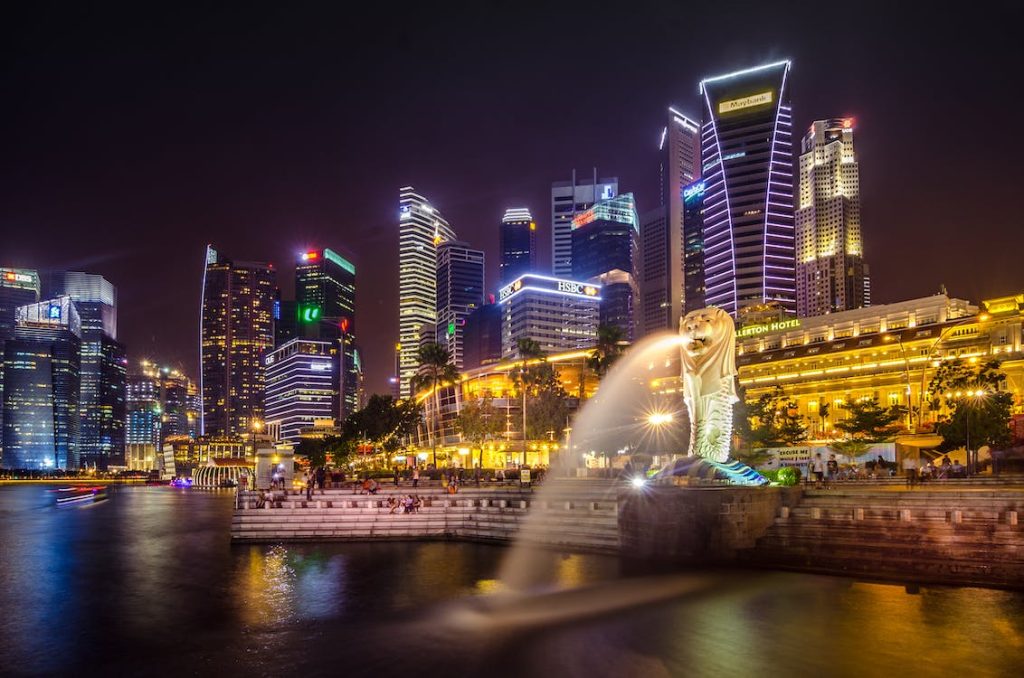Singapore is a sovereign nation in Southeast Asia that is well known as the best city centre with an excellent reputation for expat life.
It is a place with some of the world’s strongest happiness indicators, including GDP, social support, and health insurance.
If you’re thinking of moving to Singapore and meeting other Singapore expats, there are a few key things to know about the cost of living, visas and vaccines.
There’s plenty to organize before your arrival, however, from health insurance to housing.
Here’s a general lowdown of what to expect as an expat living in Singapore:
1) Housing in Singapore
Singapore saw a surge of businesses and expats relocating from Hong Kong in 2020 which added to the diversity of the country along with assisting the strengthening of the Singapore dollar.
You will easily meet new friends here, and if you move with family, education for international students at a local school is great.
However, the downside is that the costs of renting and buying your own house are higher.
Therefore, ensuring your salary can afford to pay for your house is very important.
Where are the best neighbourhoods for expats in Singapore?
The Singapore expat population can mostly be found in Tiong Bahru and Holland Village.
You can sometimes find single expats living in Tanjong Pagar, a place just outside the central business district known for its lively dining scene.

Sentosa is best-known for luxury expat housing, while Woodlands is especially popular with American expats.
Can you buy a house in Singapore as an expat?
In Singapore, expats can get a fixed or variable-rate mortgage for up to about 60 to 80% of the property value.
Unless you have become one of the permanent residents of Singapore, you are not allowed to purchase any government housing such as HDB flats.
What is the average cost of rent in Singapore?
It is well known that land is scarce in Singapore, therefore rent is usually high and dependent on the age of the property along with the area of the property.
In general, it costs at least SGD 950 per month (£370/USD 515) for a room in a shared flat and a one-bedroom apartment can cost SGD 2,500 to 4,000 per month in Singapore. You can browse to Singapore Propertyguru to learn more.
Except for serviced apartments, most rental accommodation comes unfurnished, but often includes appliances.
2) Public transport
If you are used to driving around in your home country, living in Singapore may change your routine.
They have ample public transport available with precise directions to identify areas of travel for those who speak English.
Because of the year-round tropical climate, most public transport and shopping malls have air-conditioning.
Do you need a car in Singapore?
Most of the Singaporean community utilizes public transportation such as the mass rapid transit (MRT) and public buses as their main sources of transport around the country.
However, if you are an expat parent looking to drive around with your family, you can most certainly get a car.
It is important to understand how their road tax work and ensure you abide by it if you want to own a car in Singapore.
3) Visa requirements
There are several visas expats can apply for and they include:
1) Employment Pass (EP)
Expats will typically need an Employment Pass (EP) or a work visa before entering Singapore.
An employer or appointed employment agent will apply for this document on behalf of those wishing to live and work as expats in Singapore.
There are certain criteria to receive the pass, such as earning a fixed monthly salary of at least SGD 4,500 per month.
Singapore Employment Pass holders can apply for their legally married spouse and children under 21 to join them on aDependents Pass but must earn at least SGD 6,000 per month to do so.
If you and your spouse are not married, they will need to apply for a long-term visit pass.
2) Entrepreneur Pass (EntrePass)
The Entrepreneur Pass (EntrePass) allows entrepreneurs to enter Singapore to set up their businesses.
3) Personalised Employment Pass (PEP)
The Personalised Employment Pass (PEP) allows high-earning candidates to apply directly for a visa.
Other types of Singapore work permits may be granted to professionals with certain skills.
4) Singapore as a multicultural society
When working as an expat in Singapore, there are some cultural matters to be aware of.
Some ethnic groups may wish to avoid shaking hands with the opposite gender, for instance, and older Singaporeans may use both hands for this greeting.
What language do people speak in Singapore?
The main language in Singapore is Malay. This language serves a culturally symbolic role, although English and Mandarin are used in many day-to-day exchanges.
The Expat Guide for living in Singapore
It is not difficult to find like-minded people in Singapore since it boasts one of the biggest communities of expats in the world.
You can also find a job offer in a company, especially in the information technology industry where employees mostly speak English instead of the other official languages of the country.
Here are some tips to make your new life as an expat in Singapore the best it can be:
- Make sure you have your required documents and visas in place before departure
- Look at private health insurance and life insurance for expats
- Open a local bank account
- Find accommodation
- Get your kids into school
- Expect to pay at least three months’ rent as a deposit for your tenancy agreement
- Be aware that you have to submit and pay your own taxes bi-annually
- Find all the popular destinations for locals and the expat social scene to get to know more people
It is easy to adapt to Singapore life as it is relatively easy to meet other expats who are living in Singapore.
However, many expats live in the expat bubble, without ever venturing into the areas where most locals frequent.
Although Orchard road is a great place, there are so many other smaller townships in Singapore where you can find hidden gems for hawker food and meet friendly locals.

